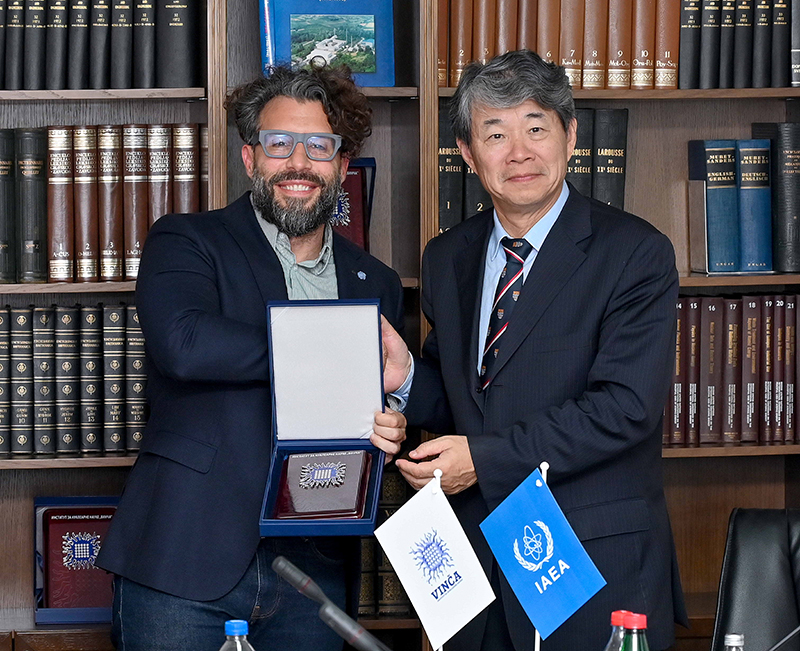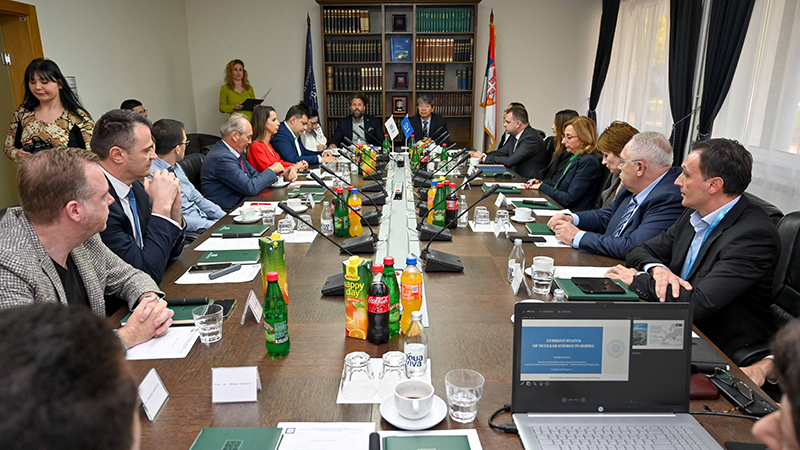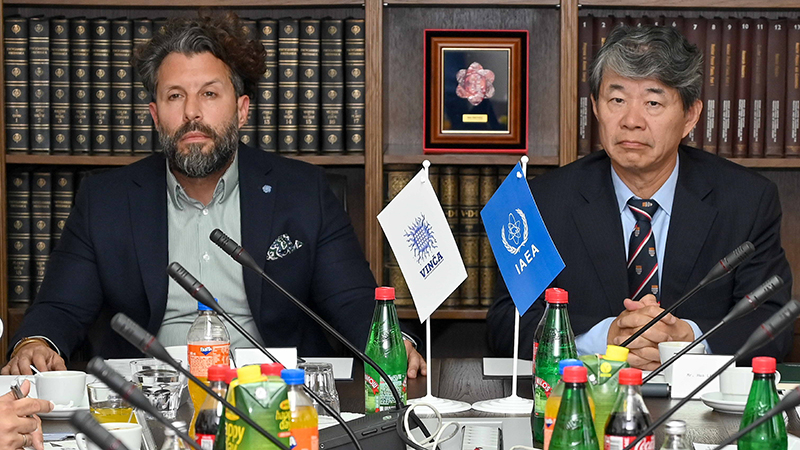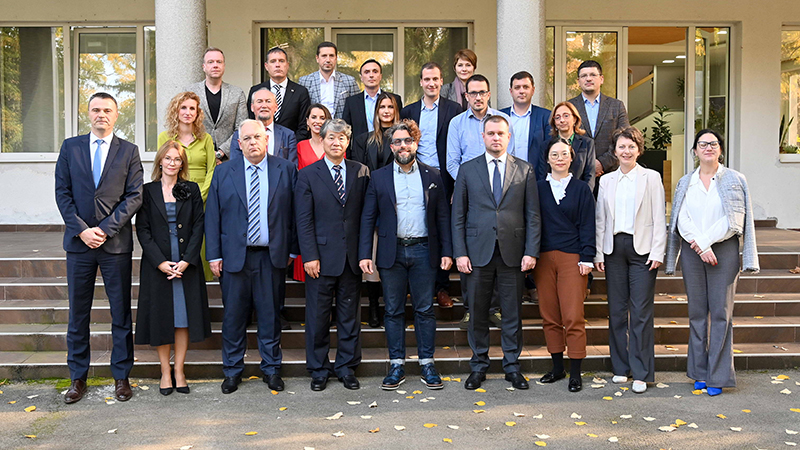As part of enhancing international cooperation in nuclear energy and technology, a delegation from the International Atomic Energy Agency (IAEA), led by Deputy Director General Hua Liu and accompanied by senior advisors Meng Li and Vsevolod Igin, visited the Vinča Institute. This important visit opened up new opportunities for supporting the development of Serbia's nuclear capabilities and highlighted future collaboration within international standards and best practices.
In addition to the IAEA expert team, the Institute hosted representatives from the Directorate for Radiation and Nuclear Safety and Security of Serbia, the Faculty of Mechanical Engineering, the Faculty of Technology and Metallurgy, the Faculty of Electrical Engineering, and the public enterprise Nuclear Facilities of Serbia. This gathering of domestic and international experts underscores the seriousness and importance of further developing the nuclear sector in Serbia.
Dr. Slavko Dimović, Director of the Vinča Institute, emphasized the significance of this visit not only for the Institute but for Serbia as a whole. “I have been in this field for over 25 years. I know how crucial nuclear energy is for the future of the Republic of Serbia and the contributions the Vinča Institute has made in this area. This is an excellent opportunity to lay the groundwork and formalize cooperation,” Dimović highlighted. He added that the Vinča Institute is a cornerstone of scientific innovation in Serbia, and that the Memorandum of Understanding on nuclear energy application and development in Serbia represents more than just a formal agreement. It is, as he stressed, “a commitment to a sustainable future based on knowledge exchange, technical cooperation, and capacity building in nuclear sciences.”
 Deputy Director General Hua Liu expressed his satisfaction with Serbia’s decision to consider incorporating nuclear energy as part of its energy mix. He outlined the resources the IAEA can offer Serbia, including assistance in forming a legal framework, education, and technical support. He emphasized that the IAEA is a reliable partner to all countries striving to advance the use of nuclear technology in a sustainable and safe way in line with the highest international standards.
Deputy Director General Hua Liu expressed his satisfaction with Serbia’s decision to consider incorporating nuclear energy as part of its energy mix. He outlined the resources the IAEA can offer Serbia, including assistance in forming a legal framework, education, and technical support. He emphasized that the IAEA is a reliable partner to all countries striving to advance the use of nuclear technology in a sustainable and safe way in line with the highest international standards.
Following the introductory speeches, Prof. Dr. Koviljka Stanković presented the history of nuclear science development in Serbia, as well as the leading actors and institutions that could spearhead a new direction in Serbia’s energy sector. This presentation served as the foundation for a discussion on future challenges, such as establishing a functional system for nuclear energy application, training qualified personnel, and the role of public opinion on this topic.
The discussion gathered all participants, providing an opportunity to exchange views, ideas, and potential solutions. Key questions were raised regarding how to ensure adequate training and human resources for nuclear energy in Serbia and the possibilities of IAEA support for the development and enhancement of this sector.
In conclusion, Dr. Dimović and Mr. Liu confirmed a shared vision for the future development of nuclear energy in Serbia. Hua Liu stated, “I am pleased that you have turned to nuclear energy. We share the same mission and vision, and with respect for legal frameworks and standards, we can achieve great things. You have chosen the right path, and we stand by your side.”
The purpose of this gathering was to foster dialogue and assess the possibilities, challenges, advantages, and potential risks of introducing nuclear energy in Serbia. This meeting opens new perspectives for the development of nuclear energy and technology, and with the support and expertise of the IAEA, Serbia and the Vinča Institute can become successful partners in this field.
Read Hua Liu’s biography at the following link: https://www.iaea.org/about/organizational-structure/department-of-technical-cooperation/deputy-director-general-of-department-of-technical-cooperation





